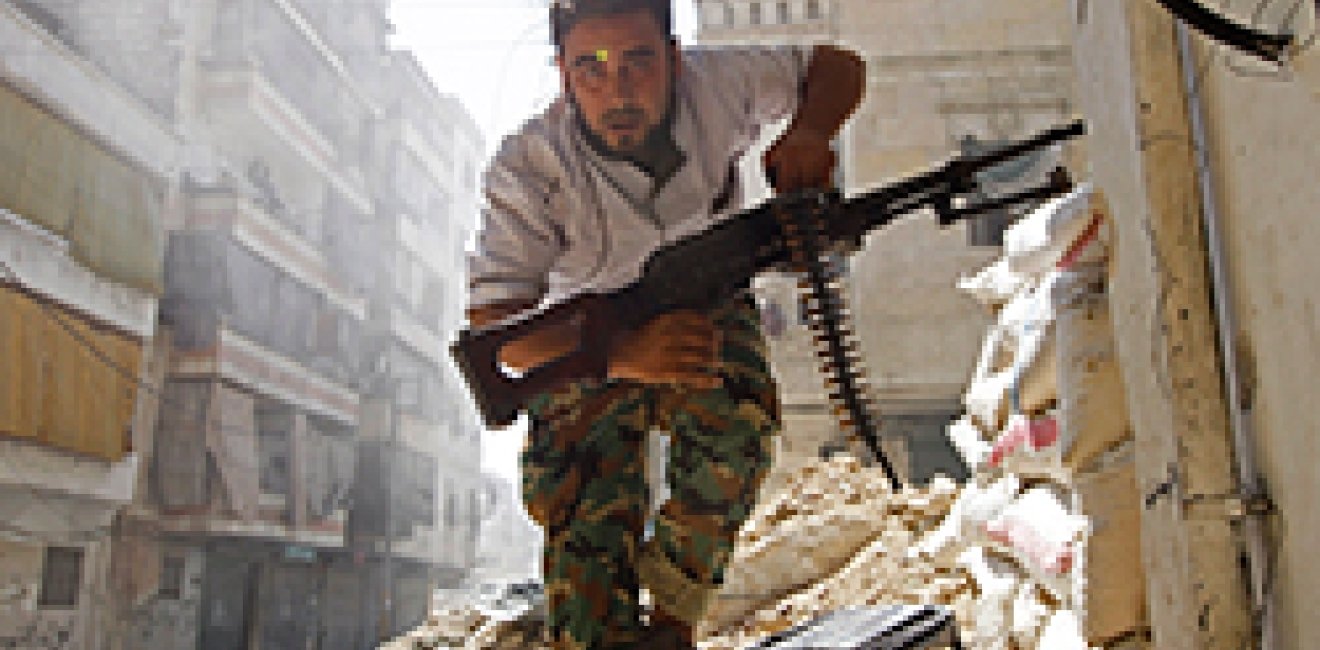Governing is about choosing. We have debt. We have deficit. We have dysfunctional politics. We have a deteriorating educational system. We have a dysfunctional, deteriorating infrastructure in this country.
And we're coming off the longest two wars, profit -- among the most profitless wars, I might add, in American history, where the standard for victory was never could we win, never could we win, but when could we leave. And this notion that extrication is something that we should use as a performance standard to measure the behavior of great power, I disagree. Syria is not an opportunity. It's a trap…
When America acts, it has to ask itself two questions, not just, can it accomplish it? If we wanted to unseat the Assads, we could do it. The question is not just that, it's what will it cost? It's the second question that always needs to accompany the first.
If and when the Geneva 2.0 fails, the administration will come into increasing pressure to do something else. This is a conference that perhaps is going to take place in mid-June. These conferences are good for one of two things: starting a process or concluding one. In this case, some of the parties don't want to start, and they have no idea how to conclude. No, I don't think McCain's visit will matter although I think he feels strongly that this is a matter of principle. I just think that you have a president who has willfully avoided intervention and who has drawn a lesson from Iraq and Afghanistan.
By the way, it is not boots on the ground. Nobody who debates these issues is talking about boots on the ground. The Iraq and Afghanistan analogy is apt in only one regard, and that is the relationship between the application of American military power in the end state. What is that relationship? And it's the uncertainty over that, which in effect created, in my judgment, the disasters that are now Iraq and Afghanistan that are a cautionary note to this president.
We talk about this discussion with whose point of departure is not the Middle East. It's the middle class. It's the middle class. The right perspective to understand why this president is behaving the way he does is the fact that he's a second-term president, one of only 17 in American history.
The clock is ticking down on his presidency. His legacy is going to be a domestic one, if any, not chasing insoluble problems that cannot be resolved. You have the 2014 midterms coming up. Democrats are vulnerable in the Senate. They'll probably not take the House back. This president is the extricator-in-chief. His mandate is to get America out of long and ineffective wars, not push America into new ones.
Barrack Obama does not want to get stuck with the check on Syria, and frankly, as an American, neither do I. It's not that I'm insensitive to the barbarity of what's happening. Upwards of 100,000 Syrians will be dead by the end of the summer. You've got radicalization, fragmentations. Syria is hemorrhaging refugees, internally displaced individuals. You're destroying a political culture and its architecture. You'd have to be a non-sentient human being not to understand all this. The question becomes, how do you create and effective strategy to essentially address the endgame? Either stay out, or craft a serious strategy, mobilize the allies, and, as Hisham has made clear, lead.
Syria is a story that will continue. It is a wound that continues to bleed. And ultimately, even though I'm against intervention, I suspect the United States, if Geneva 2.0 fails, we will be drawn in probably along the lines of providing some lethal assistance to the opposition.
Click here to listen the full conversation in The Diane Rehm Show






